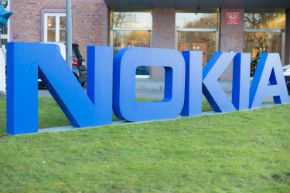Nokia and Cellcom Israel have signed a Memorandum of Understanding (MoU) to deploy Sensing as a Service in Israel with the main aim of creating a real-time environmental data offering using Cellcom Israel’s existing radio infrastructure.
Nokia Sensing as a Service allows the re-use of existing radio sites to deliver real-time environmental data including information about noise, wind, dust, air quality and hazardous gases. Cellcom Israel’s customers in enterprise, transport, healthcare, cities and utilities can use this data to build new types of services such as real-time allergy alerts, traffic routing based on pollution levels, and city, road and park planning, including biking routes, Nokia said.
Additionally, by placing sensors at existing sites, the operator will have access to data associated with their field equipment that will allow the carrier to decrease costs, for example by aligning air conditioner temperatures on all sites, detecting tower and structural vibrations, and predicting sand storms.
As part of the solution, Nokia manages the infrastructure and builds a full turnkey solution while customers focus local sales and marketing.
Together with Cellcom Israel, Nokia will also deploy a blockchain-based IoT data shop which will allow both companies to increase the transparency of IoT data monetization and drive new opportunities to innovate with ecosystem data.
Ron Shvili, CTO of Cellcom Israel, said: “We are always looking at innovative ways of improving our efficiency and creating new revenues. Nokia’s Sensing as a Service meets both requirements. By placing environmental sensors in our base station sites, we can collect data that we can sell to enterprises, public safety authorities and cities while running our sites more cost effectively.”
Thierry Boisnon, head of portfolio and investment management strategy for global services at Nokia, said: “Sensing as a Service is a great example of what IoT can do to tap the potential of data. It allows reusing existing infrastructure with great possibilities and very little risk.”
Established in 1994, Cellcom Israel is the largest Israeli cellular provider, with over 2.8 million mobile subscribers.

